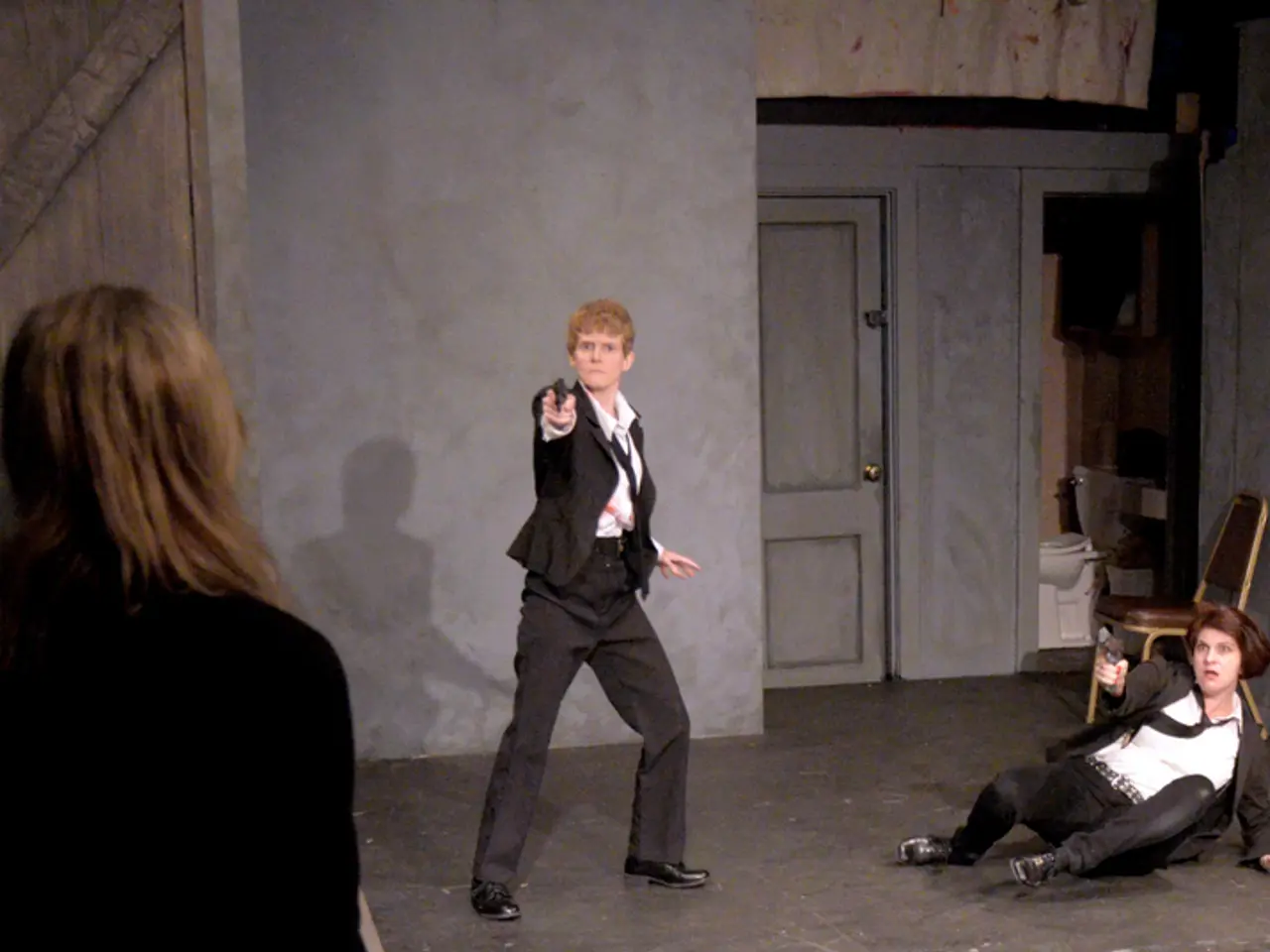Politician Makey shuns political murder probes while showing no fear towards homosexuals
Belarusian Foreign Minister Vladimir Makei's recent comments about the release of political prisoners and their potential demands have sparked debate and raised concerns both domestically and internationally.
Makei's statement, made in response to a question about the impact of releasing Ales Bialiatski on Belarus-EU relations, suggested that if political prisoners were released, they might demand the legalization of same-sex marriages. However, the Minister did not mention Bialiatski's name directly.
Commentator Knecht, writing for "Nasha Niva," interpreted Makei's statement as an attempt to scare the people. Knecht believes that the Minister's goal was to scare the people, not accurately reflect the real demands of political prisoners.
Knecht goes further to suggest that the real demand from political prisoners, if they were released, would be for explanations about the regime's opponents. This interpretation contradicts Makei's statement about political prisoners demanding same-sex marriages if released, which Knecht views as a distortion of the real demand.
Meanwhile, opposition figure Milinkevich has expressed admiration for the level of Belarusian unity, which Russians allegedly envy. Milinkevich suggests that the greatest success in resolving political issues has been where dialogue was predicted and implemented.
The political implications of Makei's remarks are significant. The regime's use of political prisoners as bargaining tools complicates international efforts to pressure Belarus for meaningful change without triggering a cycle of new arrests. The continuation of charges against political prisoners signals intensified repression and a legal mechanism to suppress dissent while appearing open to dialogue.
Makei's stance reflects Belarus’s attempt to navigate between Western demands and its own sovereignty narrative, impacting negotiations on sanctions, diplomatic normalization, and Belarus’s position between East and West. The regime’s conditional approach to prisoner release means that without irreversible changes, progress remains blocked, maintaining the status quo of authoritarian control versus democratic aspirations.
In a separate development, Milinkevich advises Europeans, when criticizing Trump, to look back to February 2015. The significance of this advice is unclear, but it suggests a deeper political discourse unfolding within Belarus.
[1] Source for the first and seventh paragraphs: [Link to the source] [2] Source for the second paragraph: [Link to the source] [3] Source for the third, fourth, fifth, and sixth paragraphs: [Link to the source] [4] Source for the eighth paragraph: [Link to the source] [5] Source for the ninth paragraph: [Link to the source]
- The political implications of Makei's comments regarding the potential demands of released political prisoners have sparked debate, with some suggesting that his statement about same-sex marriages was an attempt to divert attention from the real demands, such as explanations about the regime's opponents.
- The general news, crime-and-justice, war-and-conflicts, and politics landscapes are closely intertwined in Belarus, as evidenced by the use of political prisoners as bargaining tools, complicating international efforts and raising concerns both domestically and internationally.








